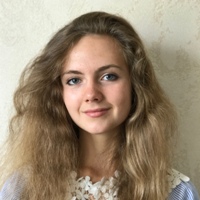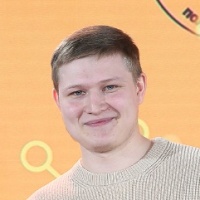Ilya Segalovich Scholarships Awarded on the Fifth Anniversary of HSE’s Faculty of Computer Science
As part of the HSE Faculty of Computer Science fifth anniversary celebration at Mercury Moscow City Tower, Ilya Segalovich Scholarships were awarded.
The first scholarships were awarded in 2015, on the first anniversary of the Faculty. Over the years, the Faculty has become one of the most recognized faculties not only at HSE, but among Russia’s leading IT faculties.
The HSE Faculty of Computer Science was created in collaboration with Yandex, based on Stanford University and EPFL’s example. Today, the Faculty has increased the number of its partner projects with Yandex, and it also cooperates with Samsung, SAS, CERN and Sberbank. Since the Faculty is popular among mathematic and programming test winners, the number and level of undergraduate and Master’s students is growing annually, and the level of education is growing accordingly.
students
undergraduate programmes (including an English-taught double degree programme with the University of London)
master’s programmes
research laboratories
Russian Science Foundation grants
Supporting young researchers is a one of the Faculty’s top priorities, and the Ilya Segalovich Scholarship is one of the ways to motivate the best students who carry out projects and research. The scholarship awards undergraduate, master’s and doctoral students a monthly stipend of 30,000, 35,000, and 40,000 rubles, respectively, for one year.
This year, 16 students have been awarded the scholarship: Nikita Veselko, Filipp Gribov, Nikita Kalinin, Daniil Nikolenko, Mikhail Nosovsky, Irina Ponamareve, Vladimir Smurygin, Polina Tarantsova, Daniil Tyapkin, Anastasia Chistopolskaya, Artem Gadetsky, Ekaterina Kozlova, Alexander Lazarenko, Vladislav Belavin, Olga Gerasimova, and Roman Nesterov.
Igor Agamirzian, Vice President of HSE, Maria Yudkevich, HSE Vice Rector, Sergey Roshchin, HSE Vice Rector, Arutyun Avetisyan, Director of the Ivannikov Institute for System Programming, Andrey Sobolevsky, Director of Kharkevich Institute for Information Transmission Problems, Mikhail Levin, Deputy Head at Yandex Banner System Service, as well as representatives of Sberbank, Samsung, 1C and other faculty partners came to congratulate the Faculty of Computer Science and award the winners.
2019 winners spoke with the HSE News Service about their projects and research interests.

Polina Tarantsova, 2nd-year student of Software Engineering
I am doing research on Process Mining. The technologies developed by researchers in this sphere are widely used in businesses to improve economic efficiency andto analyze the behavior of users and systems.
Any process can be described as a sequence of events. In real life, we have to deal with huge data sets, which include hundreds of thousands events that are very hard to analyze. A process mining researcher works with an event log. Their task is to build a model that would describe the system from which the log has been retrieved in the most precise and compact way.
In 2018, my academic supervisor and I suggested an approach based on detecting sub-processes in a system, which allowed decreasing the size of the describing model by 65 times, without losing any behavioural patterns! As a result of the study, we’ve written a paper, which was published in a Springer journal and presented at AIST, an international conference. Today, I’m involved in the application of machine learning for retrieving models at the

Artyom Gadetsky, 1st-year student of the Master’s programme in Statistical Learning Theory

Roman Nesterov, doctoral student, Research Assistant at the Laboratory of Process-Aware Information Systems (PAIS Lab)
I am in my second year of the joint doctoral programme with the University of Milano-Bicocca(Università degli Studi di Milano-Bicocca, UNIMIB). I carry out research in synthesis of formal (executable) models of processes by information system logs (process discovery). This field is developing rapidly; in 2019, it was named an IT area of top global priority by Gartner.
Together with researchers from the group ‘Models of Concurrency, Computation and Communication’ at UNIMIB, we are working on methods for composition synthesis of multi-agent system models by their event logs. An important task for any approach that uses composition is providing ‘zero defects’ in the received models. For example, it is desirable that the model doesn’t allow deadlocks.
In 2018, we presented a general approach to composition synthesis at a PETRI NETS 2018 conference workshop. Our approach allows us to create a multi-agent system model by means of operated composition of specific agents’ behavior models, as well as inheriting the agents’ features. This means that it’s unnecessary to check the model of the whole system, if the agents’ models are zero-defect. In addition, the system model visually reflects the structure of agents’ interaction, which facilitates its application and analysis.
The application of this approach may require quite a deep theoretical knowledge, so we have also developed special composition patterns that are convenient for practical application. These patterns describe some typical ways of interaction between agents in multi-agent systems and are, in fact, ready-to-use solutions. We’ve used this developed library of patterns to conduct an in-depth experimental evaluation, the results of which confirm applicability of our approach. Today, we are actively working on clarifying and generalizing the results we’ve received.
Arutyun Avetisyan
Head of the Joint Department with the RAS Institute for System Programming
Igor Agamirzian
HSE Vice President
Dmitry Vetrov
Head of the Centre of Deep Learning and Bayesian Methods
Artyom Gadetsky
Research Assistant at the Research Laboratory for Data Analysis in Financial Technologies
Irina A. Lomazova
Professor at the School of Software Engineering
Roman Nesterov
Research Assistant at the Laboratory of Process-Aware Information Systems (PAIS Lab)
Sergey Roshchin
HSE Vice Rector
Andrei Sobolevski
Head of the Department of Technologies for Complex System Modelling
Maria M. Yudkevich
HSE Vice Rector
See also:
Start of a Long Journey: Young HSE Scientists Contribute to Learning Theory at COLT 2025
Participation in high-level international events is crucial for the professional development of researchers starting their career in science. It provides an opportunity to exchange ideas, create promising teams, and make important connections. This summer, Denis Ryapolov and Askar Tsyganov, students of the Applied Mathematics and Computer Science programme and staff of the AI and Digital Sciences Institute at the Faculty of Computer Science of HSE University, attended the prestigious international Conference on Learning Theory, COLT 2025, which was held in Lyon, France. In an interview, they shared their experiences and impressions from the trip.
From Neural Networks to Stock Markets: Advancing Computer Science Research at HSE University in Nizhny Novgorod
The International Laboratory of Algorithms and Technologies for Network Analysis (LATNA), established in 2011 at HSE University in Nizhny Novgorod, conducts a wide range of fundamental and applied research, including joint projects with large companies: Sberbank, Yandex, and other leaders of the IT industry. The methods developed by the university's researchers not only enrich science, but also make it possible to improve the work of transport companies and conduct medical and genetic research more successfully. HSE News Service discussed work of the laboratory with its head, Professor Valery Kalyagin.
‘Corporate Finance Is an Intriguing Field That Offers Immense Flexibility in Your Professional Life’
With less than three weeks left to apply for full scholarships for master's programmes, the HSE University School of Finance held an online meeting to offer key details for prospective students of the Strategic Corporate Finance programme for the 2025/26 academic year. The meeting covered topics ranging from courses and admission requirements to the international student experience at HSE University.
HSE Team Takes First Place in RuCode Algorithmic Programming Championship
On October 20, 2024, the final round of the RuCode Algorithmic Programming Championship took place, setting a new record in the Russian Book of Records as the ‘Largest Competitive Programming Event.’ The event, held simultaneously across 24 locations, hosted 1,450 participants divided into 500 teams. The overall winner of the senior team division was the M.O.S.C.O.W. team from the HSE Faculty of Computer Science (FCS).
HSE Teachers Awarded Yandex ML Prize
The awards ceremony for the international Yandex ML Prize was held in Moscow. This year, all three winners in the ‘ML Educators’ category were HSE faculty members—Evgeny Sokolov, Associate Professor and Head of the Big Data and Information Retrieval School, Anton Konushin, Associate Professor at the Faculty of Computer Science, and Aleksei Shpilman, Associate Professor at the Department of Informatics at HSE’s St Petersburg School of Physics, Mathematics, and Computer Science.
Researchers at HSE in St Petersburg Develop Superior Machine Learning Model for Determining Text Topics
Topic models are machine learning algorithms designed to analyse large text collections based on their topics. Scientists at HSE Campus in St Petersburg compared five topic models to determine which ones performed better. Two models, including GLDAW developed by the Laboratory for Social and Cognitive Informatics at HSE Campus in St Petersburg, made the lowest number of errors. The paper has been published in PeerJ Computer Science.
HSE University to Reward Students Who Write Their Thesis Using AI
HSE University has launched a competition for solutions using artificial intelligence technology in theses work. The goal of the competition is to evaluate how students use tools based on generative models in their 2024 graduation theses (GT).
HSE and Yandex to Expand Collaboration in Training AI Specialists
Over the next ten years, the partnership between Yandex and the HSE Faculty of Computer Science (FCS) will broaden across three key areas: launching new educational programmes, advancing AI research, and exploring the application of generative neural networks in the educational process. Established by HSE University and Yandex a decade ago, the Faculty of Computer Science has since emerged as a frontrunner in training developers and experts in AI and machine learning, with a total of 3,385 graduates from the faculty over this period.
130 HSE University Students Receive Scholarships under VK Education Subscription Programme
As a result of the annual VK scholarship programme, the students receive monthly payments and other bonuses for developing skills and growing professionally. These include career consultations, access to a closed pool of vacancies and internships, the opportunity to participate in VK Education training programmes without undergoing an additional selection process, and a subscription to VK Music.
Two HSE Researchers Receive Yandex ML Prize
Two researchers from the HSE Faculty of Computer Science—Aibek Alanov, Junior Research Fellowat the Centre of Deep Learning and Bayesian Methods, Research Fellow at AIRI; and Pavel Braslavski, Associate Professor, Senior Research Fellow at the Laboratory for Models and Methods of Computational Pragmatics—are among the winners of the 2023Yandex ML Prize (formerly the Ilya Segalovich Award).


